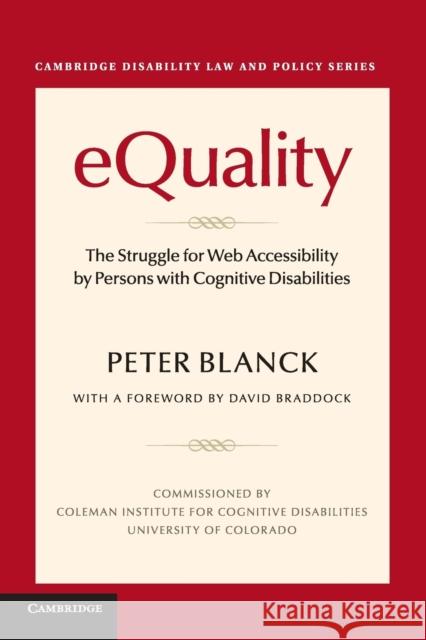Equality: The Struggle for Web Accessibility by Persons with Cognitive Disabilities » książka
topmenu
Equality: The Struggle for Web Accessibility by Persons with Cognitive Disabilities
ISBN-13: 9781316638132 / Angielski / Miękka / 2016 / 502 str.
Equality: The Struggle for Web Accessibility by Persons with Cognitive Disabilities
ISBN-13: 9781316638132 / Angielski / Miękka / 2016 / 502 str.
cena 213,83 zł
(netto: 203,65 VAT: 5%)
Najniższa cena z 30 dni: 125,88 zł
(netto: 203,65 VAT: 5%)
Najniższa cena z 30 dni: 125,88 zł
Termin realizacji zamówienia:
ok. 16-18 dni roboczych.
ok. 16-18 dni roboczych.
Darmowa dostawa!
This book explores the struggle for disability rights, with a focus on Web equality for people with cognitive disabilities.











